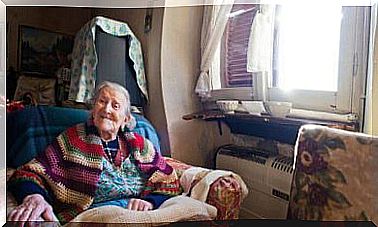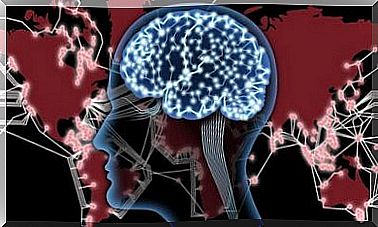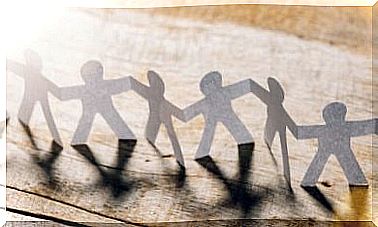Are You Telling The Whole Truth?

From the moment we are born, we start making decisions. It seems incredible, but we do it even as children: we decide whether to take a game or another, which flavor of ice cream we prefer, etc. In short, we behave like adults capable of reasoning and making choices.
Similarly, from the moment we are born, we begin to “tell” ourselves what happens to us. Many times, in fact, the importance of what we experience lies in how we tell it to ourselves. We are real “storytellers” of our life.
Our survival instinct leads us to distort reality, in order to generate more sweetened stories, which make our perception of what surrounds us and of ourselves easier, more dignified and bearable.
One of the many ways we distort reality is called denial, and it is perhaps the most classic defense mechanism : we do not address conflicts or complex realities by directly denying their existence, importance or by convincing ourselves that they do not concern us.
We reject the aspects of reality that we don’t like. This mental trick, however, is very dangerous, because we often don’t even realize it.
We are continually faced with emotional conflicts and threats that can arise from the outside or from the inside, but at the same time we refuse to accept some painful aspects of the reality that surrounds us or of our own experiences. The others, however, are able to see them from the outside.
There are different types of behaviors that result in denial. In severe cases this is caused by dangerous behavior or the consumption of addictive substances. Most alcoholic people, for example, deny that they suffer from this addiction and claim that they have everything under control. From the outside, however, it is easy to understand that they are lying. The problem is that those who deny also deny themselves.
The example of drugs is very clear, but the mechanism of denial is sometimes also activated in interpersonal relationships. And what happens? As in addictions , denial prevents us from seeing the truth, does not set us free and inevitably leads us to establish relationships of dependence.
But why do we deny?
Most of the time, when we deny something that has to do with our relationships, especially as a couple, the cause is deeply ingrained feelings or beliefs, such as fear of being abandoned or low self-esteem. During the process of falling in love, for example, we can fall into the idealization of the partner. Denying the aspects of him / her that hurt us most, however, can be dangerous: it could in fact be a toxic relationship , while we idealize that person to avoid suffering. Bonds of this type are very powerful, but they tend to be addictive.
How can we know if we are denying?
Our body is extraordinarily wise, and our nature is amazing. This is why we react to external stimuli in a physical way. All emotions, in fact, manifest themselves organically: sorrow, anger, happiness, sadness, anxiety, etc.
There are negative phrases or behaviors of our partner that can produce negative reactions in our organism: we must learn to listen to what the body tells us.
Let’s take sorrow as an example: Most addictive relationships are characterized by the presence of emotions such as grief and sorrow. If you feel pain early on in a relationship, you may not realize it and deny it. But surely you have heard phrases such as: “But I’m sorry for him”, “I don’t want to leave him alone, he has no friends, I feel sorry”, or “I know he doesn’t treat me well, but he is already suffering for other reasons and she’s a good girl, I’m sorry to leave her ”.
Pain is not love and sorrow will not make you fall in love, but start an addictive relationship. It will make you feel that your partner “needs you”, or that you need him. Healthy couples love each other, they support each other… But they don’t need each other. They stay together because they want it, not because they need it.
The need arises when we are now addicted, and this dependence leads to isolation and a lack of personal resources. For this reason, instead of helping us to solve the shortcomings we had, such as low self-esteem or the fear of abandonment, they amplify them.
If we place all our reasons for satisfaction in the other, we are in grave danger. Our state of mind will always depend on the partner, our decisions will have to be approved by him. The greater our addiction, the smaller we will feel and the less personal resources we will have. For this it will become increasingly difficult to break those toxic bonds, not only because we feel sorry, but also because we feel that we are alone and that we cannot exist without the other. To all of this will eventually be added the worst ingredient of all: the sense of guilt.
We can understand that we are denying when:
– The person we love makes us sorry and we cling to that penalty to justify our behavior.
– The person we love makes us feel jealous, and to justify jealousy we blame ourselves.
– The person we love makes us feel that we are worth little, our skills, our opinions or our style does not like him / her, and is ashamed of our reactions.
– The person we love limits our vital space and time, causing us a feeling of oppression and / or leading us not to have satisfying social relationships.
Without denying, can we love?
Obviously the answer is yes. Penalty does not mean empathy; jealousy does not mean having established an intimate and personal connection with those we love; feeling less does not mean exchanging different points of view on things; and sharing activities with the partner does not mean that he / she has to occupy all of our time.
We are not choosing a master, nor a son, nor a father or a mother, nor a leader, or a slave… We are choosing a life partner . The more we deny, the further we move away from pure and unconditional love. The truth is necessary to be happy: only by accepting reality will we be able to make a qualitative leap in our relationships. As Carl Jung said well: “ What you deny submits you, everything you accept transforms you “.








